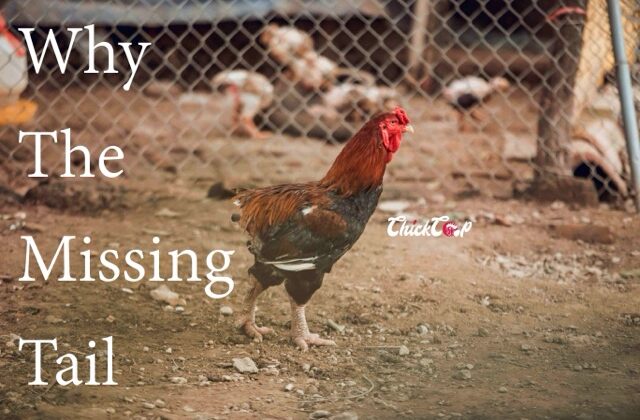
Why You Must Buy Certified Feeds?
When it comes to raising healthy, happy chickens and producing high-quality eggs or meat, feed is the foundation. But not just any feed will do—today’s consumers are increasingly conscious about where their food comes from, how animals are raised, and the quality of their diet. That’s why buying organic certified feeds is one of the most powerful decisions you can make as a poultry farmer or backyard chicken keeper.
Organic certification isn’t just a label slapped onto a bag of feed. It’s a rigorous process backed by independent certifying agencies to ensure that what you’re giving your birds is free of harmful additives, synthetic chemicals, and questionable ingredients. Let’s explore why organic certification is so important, what it means for your flock, and why making the switch could transform your poultry business.
The Role of Certifying Agencies
In the United States, the USDA National Organic Program (NOP) sets the baseline standards for what can be labeled “organic.” Independent certifying agencies—many of which are private organizations—are then accredited by the USDA to verify that products meet these standards.
Each agency may have slightly different inspection processes or documentation requirements, but they all uphold the same core principles:
- Animals must be raised in spacious, humane environments.
- Birds must be given a 100% vegetarian diet.
- Feed must be free from antibiotics, synthetic additives, pesticides, and GMOs.
This means that when you buy organic certified feed, you can rest assured that the product has been scrutinized and verified by trusted third parties.
The Certification Journey
For manufacturers, obtaining organic certification isn’t simple—and that’s a good thing. The process ensures that only truly dedicated producers make it through. Here’s what it involves:
1. Annual Farm Plan – Feed manufacturers must submit a detailed plan explaining every step of their sourcing, processing, and quality control.
2. Meticulous Record-Keeping – Every ingredient and step must be tracked for transparency.
3. Yearly Inspections – Independent inspectors visit facilities to verify that practices align with organic standards.
4. Ongoing Compliance – Certification isn’t permanent. Producers must continually prove they are adhering to organic requirements.
This rigorous system helps protect the integrity of the organic label and builds trust for farmers and consumers alike.
Why Choose Organic Certified Feed?
If you’re still wondering whether it’s worth the investment, here are some compelling reasons why organic feed is the smarter choice:
1. Healthier Chickens, Better Productivity
Chickens fed organic diets grow stronger, are less stressed, and are less prone to diseases. Without antibiotics or synthetic chemicals in their feed, their immune systems thrive naturally. This translates to better egg production and healthier flocks overall.
2. Safer, More Nutritious Eggs and Meat
What your chickens eat directly impacts the quality of their eggs and meat. Organic feed ensures that your products are free from harmful residues, making them healthier for human consumption and more appealing to consumers who prioritize clean, wholesome food.
3. Consumer Trust and Market Advantage
Consumers are willing to pay a premium for products labeled organic. By investing in certified feeds, you not only improve the well-being of your flock but also position your farm or brand as trustworthy and premium-quality. This credibility can set you apart in a competitive market.
4. Ethical and Environmental Responsibility
Organic farming practices support biodiversity, reduce chemical pollution, and promote soil health. By choosing organic certified feed, you’re contributing to a more sustainable agricultural ecosystem—something both your conscience and your customers will appreciate.
How to Verify Organic Feed Before Buying
Not all feeds are created equal, and unfortunately, some products claim to be “natural” without actually being certified. Here are some quick tips to ensure you’re buying the real deal:
- Look for the USDA Organic Seal – Only feeds verified through accredited agencies carry this mark.
- Ask for Certification Documents – Legitimate suppliers will gladly share their certification.
- Check the Ingredient List – Organic feeds should be free from GMOs, pesticides, and artificial additives.
- Work with Trusted Suppliers – Partnering with certified feed suppliers ensures consistency and peace of mind.
The Bottom Line
When you choose organic certified feed, you’re not just buying feed—you’re investing in healthier flocks, safer products, and stronger trust with your customers. The certification process may be rigorous, but that’s precisely what makes it so reliable.
As demand for organic eggs and meat continues to rise, making the switch to certified organic feed could be the smartest decision you make for your farm’s future.
Ready to Make the Switch?
Your chickens deserve the best, and your customers deserve the peace of mind that comes with organic-certified products. If you’re ready to explore high-quality organic feed options, don’t wait. Give us a call today and let’s discuss how we can help you source the perfect feed for your flock.
At ChickCoop®, we’re more than just a Chicken Company, writing interesting blogs about them– we’re your trusted partner in building a modernized, sustainable and profitable farm. From breed selection to buy-back support, feed guidance, and modern farm management tips, we ensure farmers like you achieve the best results and profits.
Call us today to discuss your farming needs
📧 Email us at: write@chickcoop.in
📞 Call us: +91-9939209699


